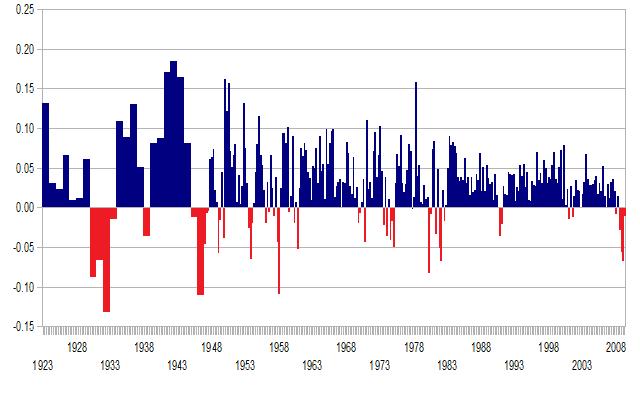Disir
Platinum Member
- Sep 30, 2011
- 28,003
- 9,608
- 910
I thought it would be both fun and enlightening to post the best free market fails.
My all time favorite happens to occur in Russia.
The Oligarchy's Rule of Law: From Russia to Oklahoma
Now, you really want to know what makes this hysterical (in the insane laughter type of hysterical)?
This is Cato's board of directors:
Board of Directors | Cato Institute
This is ALEC
American Legislative Exchange Council - Limited Government · Free Markets · Federalism

The group of people buying legislation.........
I've got more. What do you have?
My all time favorite happens to occur in Russia.
At the end of the 1990s, after the total collapse of the mass-privatization experiment in Boris Yeltin's Russia, some of the more earnest free-market proselytizers tried making sense of it all. The unprecedented collapse of Russia's economy and its capital markets, the wholesale looting, the quiet extermination of millions of Russians from the shock and destitution (Russian male life expectancy plummeted from 68 years to 56 years)the terrible consequences of imposing radical libertarian free-market ideas on an alien cultureturned out worse than any worst-case-scenario imagined by the free-market true-believers.
Of all the disastrous results of that experiment, what troubled many Western free-market true-believers most wasn't so much the mass poverty and population collapse, but rather, the way things turned out so badly in Russia's newly-privatized companies and industries. That was the one thing that was supposed to go right. According to the operative theorydeveloped by the founding fathers of libertarianism/neoliberalism, Friedrich von Hayek, Ludwig von Mises, Milton Friedman and the resta privately-owned company will always outperform a state-run company because private ownership and the profit-motive incentivize the owners to make their companies stronger, more efficient, more competitive, and so on. The theory promises that everyone benefits except for the bad old state and the lazy.
That was the dominant libertarian theory framing the whole "shock doctrine" privatization experiment in Russia and elsewhere. In reality, as everyone was forced to admit by 1999, Russia's privatized companies were stripped and plundered as fast as their new private owners could loot them, leaving millions of workers without salaries, and most of Russia's industry in far worse shape than the Communists left it.
Most of the free-market proselytizersranging from Clinton neoliberal Michael McFaul (currently Obama's ambassador to Moscow) to libertarian Pinochet fanboy Andrei Illarionov (currently with the Cato Institute) blamed everything but free-market experiments for Russia's collapse.
But some of the more earnest believers whose libertarian faith was shaken by what happened to Corporate Russia needed something more sophisticated than a crude historical whitewash.
Lucky for them, Milton Friedman provided the answer to a Cato Institute interviewer: Russia lacked "rule of law"another neoliberal/libertarian catchphrase that went mainstream in the late 80s. Without "rule of law," Friedman and the rest of the free-market faithful argued, privatization was bound to fail. Here's Friedman's answer in the Cato Institute's 2002 Economic Freedom of the World Report:
CATO: If we reflect upon the fall of communism and the transition from the centrally planned economy to a market economy, what have we learned in the last decade of the importance of economic freedom and other institutions that may be necessary to support economic freedom?
MILTON FRIEDMAN: We have learned about the importance of private property and the rule of law as a basis for economic freedom. Just after the Berlin Wall fell and the Soviet Union collapsed, I used to be asked a lot: "What do these ex-communist states have to do in order to become market economies?" And I used to say: "You can describe that in three words: privatize, privatize, privatize." But, I was wrong. That wasn't enough. The example of Russia shows that. Russia privatized but in a way that created private monopolies-private centralized economic controls that replaced government's centralized controls. It turns out that the rule of law is probably more basic than privatization. Privatization is meaningless if you don't have the rule of law. What does it mean to privatize if you do not have security of property, if you can't use your property as you want to?
Others expanded on Friedman's rationalization, arguing that without this "rule of law" to protect their private property, the new private owners of Russia's industries were incentivized to plunder their companies as quickly as possible for fear that the state would steal their companies back. Of course, all this rationalizing was undermined by fact that Russia's oligarchs stole their companies in the first place, and thieves do tend to steal what they've stolen. But never mindthe libertarian ideology was salvaged, as Russia's privatization experiment was declared "not a real free-market" without Friedrich Hayek's "rule of law" in place.
The Oligarchy's Rule of Law: From Russia to Oklahoma
Now, you really want to know what makes this hysterical (in the insane laughter type of hysterical)?
This is Cato's board of directors:
Board of Directors | Cato Institute
This is ALEC
American Legislative Exchange Council - Limited Government · Free Markets · Federalism

The group of people buying legislation.........
I've got more. What do you have?


